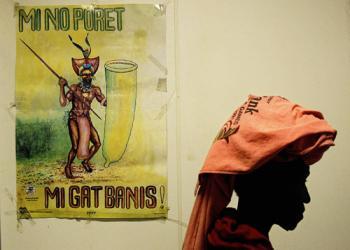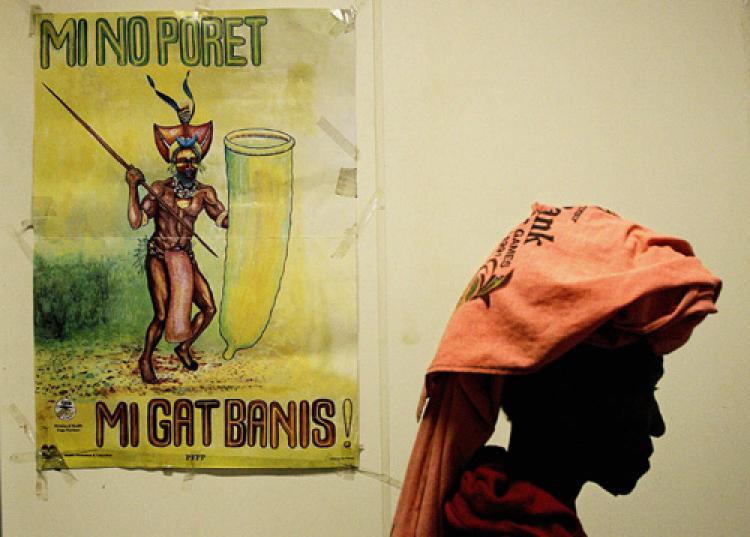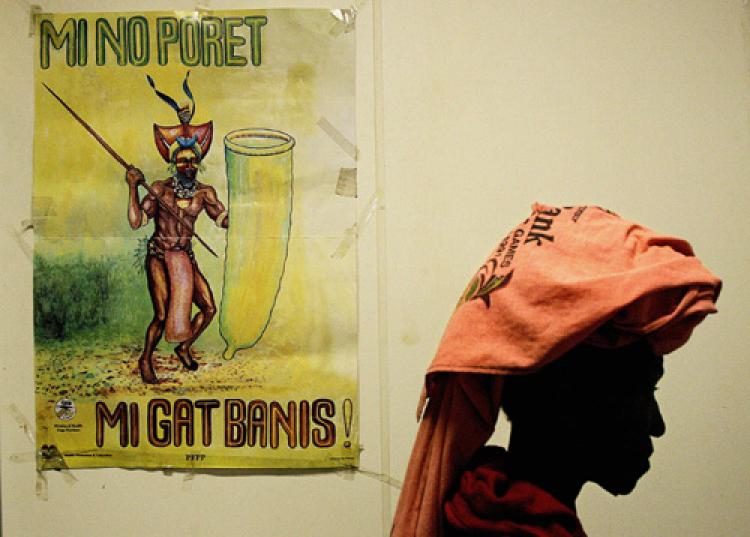In March last year, the PNG Government’s National AIDS Council Secretariat (NACS) admitted it left the stockpile, worth $A190,000, sitting in a warehouse for more than 18 months.
It was not AusAID’s fault as distribution is the PNG Government’s responsibility.
But AusAID’s response was typically bureaucratic and the agency didn’t dare criticise its partner in the fight against AIDS.
An AusAID spokesman said 45 million more male and female condoms were on their way to PNG.
“While any wastage of resources is unfortunate, sufficient supplies of condoms are available in PNG,” he said.
At the time, documents obtained by AAP showed NACS had overspent its budget, with hundreds of thousands of dollars wasted – most notably on unnecessary travel.
The documents also outlined alleged expense abuses by senior staff.
One NACS board member described NACS leaders as “rotten to the core”.
There were reports this month that NACS officers inappropriately paid themselves amounts ranging from 500 kina ($A200) to 29,000 kina ($A11,600) for personal expenditures.
“The council has been in chaos for the past four years and is now recovering,” NACS chairman Sir Peter Barter said in response to the allegations.
More chaos
This month, the PNG Public Accounts Committee reported there was accountability and transparency in the use of public money in only 5 of the 1000 government agencies.
The Global Fund, a major investor in HIV/AIDS, tuberculosis and malaria programmes, last year rejected PNG’s application for money because it failed to meet strict funding guidelines for accountability.
The fund is now reviewing the case while urging donors to help PNG submit a better application.
To make matters worse, PNG’s 2009 budget slashed AIDS funding from 101.3 million kina ($A59 million) to 76.2 million kina ($A44 million).
But it’s not just a chaotic Government that makes things difficult – there is also the unusual behaviour of some locals.
Late last year, this reporter went fishing with PNG villagers who use AusAID funded condoms as lures to catch fish. Women commonly use the condoms’ lubricant as a faux facial cream and often use it as an elixir on sores and abrasions.
No surprises then when the most recent UN report shows growth in the number of new AIDS cases has increased exponentially, from 21 per cent in 1984-1989 to more than 99 per cent growth in 2008.
The UN estimates there are 54,000 people living with HIV in PNG.
It has forecast that by 2012, PNG will face a prevalence rate of 5.07 per cent, with 208,714 people being infected with HIV – almost four times the number today.
Aus aid inefficient
Billions in donor and non-government organisation (NGO) money pours into PNG, yet it is hard to spot any positive effects.
Australia will spend $100 million to tackle AIDS in PNG over a 5-year programme that started in January 2008.
But recently, the spotlight has been put on how effectively that aid is spent and where it’s actually going.
A 180-page report tabled in Federal Parliament on November 26, 2009 found: “AusAID faces considerable management challenges amidst ongoing programme growth.”
The report stated that about 46 per cent of AusAID budgets went to “technical assistance”, which goes towards administration costs and salaries for experts, advisers or consultants.
AusAID regularly comes under fire for the army of advisers in PNG who earn massive tax-free salaries, many higher than that of Prime Minister Kevin Rudd’s base salary of $335,000, all while development indicators show regression.
Paulinus Sikosana, AusAID’s health adviser to PNG, costs Australian taxpayers $743,000 for his tax-free salary over two years, while Australian John Dinsdale, an AusAID law and justice adviser, is on a 2-year tax-free contract worth $1,077,463.
Mr Rudd flagged his concern with AusAID’s reliance on consultants when speaking in April last year at a press conference with PNG counterpart Michael Somare.
“Too much money has been consumed by consultants and not enough money was actually delivered to essential assistance in teaching, in infrastructure, in health services on the ground, in the villages,” Mr Rudd said.
An AusAID spokeswoman told AAP the PNG Government frequently requests technical experts to advise their departments.
“These advisers bring crucial skills that often do not exist locally,” the spokeswoman said.
“In order to attract the best people to adviser positions, it’s necessary to pay competitive market rates.”
Dr Sinclair Dinnen from Australian National University’s School of Pacific and Asian Studies has written extensively about PNG and says aid is a complex matter.
“[But] Australian taxpayers should be asking themselves if their money is being well used in PNG.”


